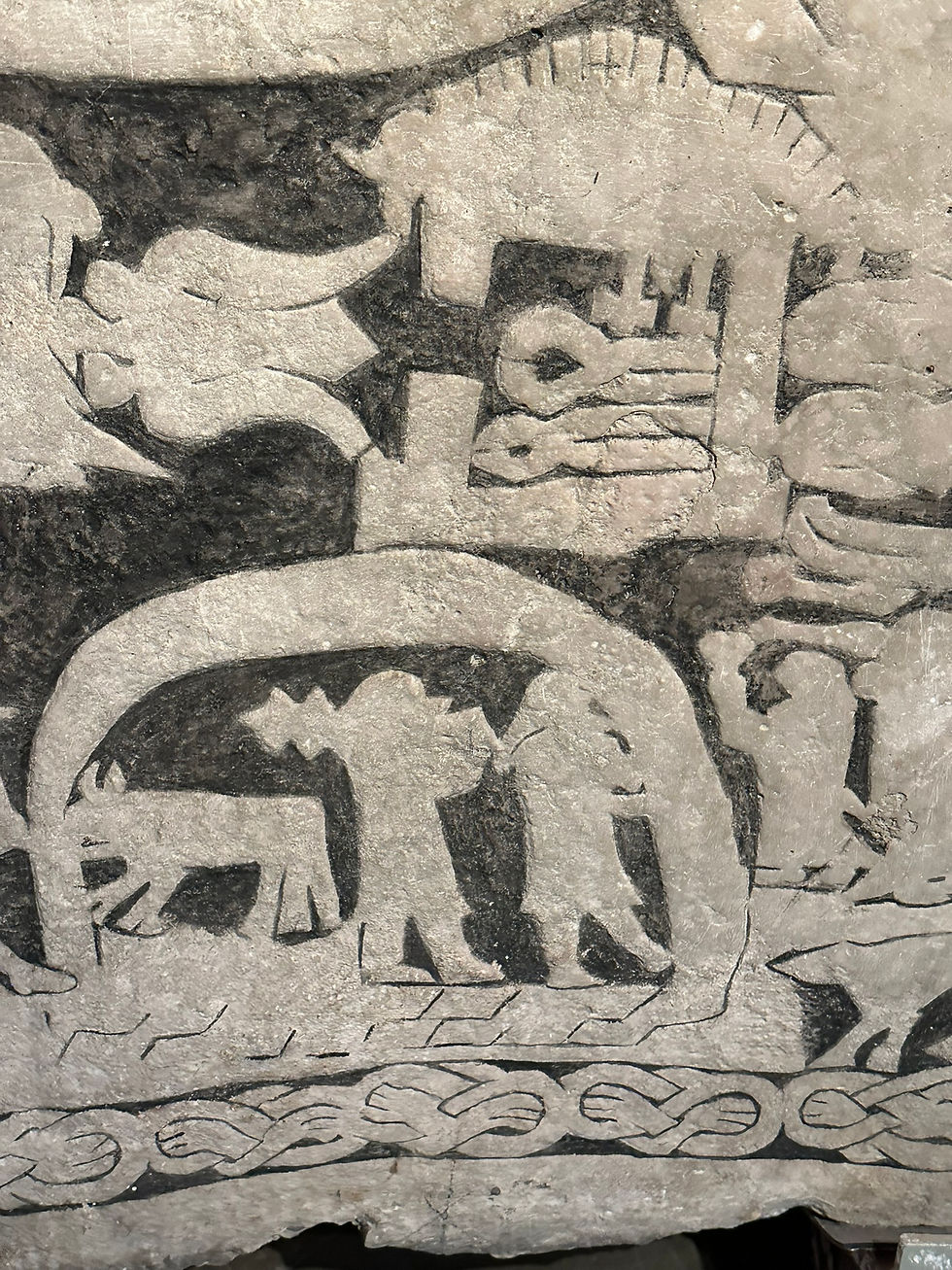LOKI - WE TELL THE TALES OF HIM BUT WE RAISE NO HORNS IN HIS NAME
- Hrolfr
- Mar 5, 2021
- 3 min read
In Odin's Warrior Tribe we tell the stories of all the Gods and their adventures when we gather around the blazing campfire until the early morning hours. We honor and toast all of the Gods, or special ones, at our blots and sumbls and call on them and take oaths in their names with ONE exception. While we tell stories from the Eddas that may involve Loki Laufeyjarson we do not single out for toasts or honor Loki who along with two of his children are the major forces behind Ragnarök. There are many stories in the Eddas with Loki in them and they are fascinating because usually Loki creates wrongs and then is forced - often by threat of violence - to fix them. At times, his solutions make the Gods even stronger and bring them powerful gifts. Loki is also the real reason that Baldr was murdered and Baldr is kept in Hel and will stay there until after Ragnarök. So, the ancestors spoke freely of Loki - he is not some Harry Potter "Lord Voldemort" - he who shall not be named.
There are warnings in the stories of Loki, including about being incredibly careful of your blood brother relationships since Odin himself is Loki's blood brother and hence reluctant to punish him at times when he has clearly gone too far. At one feast that is covered in the Poem "Lokasenna," Loki kills a servant of the Feast host, the Sea Giant Aegir (just because the other Gods complimented the servant), then thereafter admits he is the cause of Baldr's death, and he goes on to insult all of the Gods in a most despicable manner. The Gods finally have had enough. "And after that Loki hid himself in Franang's waterfall in the guise of a salmon, and there the gods took him." They punish Loki, the "rogberi asanna" (meaning slanderer God in Old Norse). They have him bound until the Twilight of the Gods. Some heathens and Asatruar worship and honor Loki - that is their and your prerogative. It is not our Tribe practice though.
Loki is not the Heathen version of the Christian Devil - that is an extremely poor analogy. He does not represent Evil per se though he can be evil. He is more of a force of chaos and in the end destruction. He is a deceiver, a traitor, a trickster, but often in the process he is creative. Loki often proves necessary to get the Gods out of trouble (that he helped create). So, we tell of his mischief, his tricks and cunning, and shapeshifting. We can learn from those abilities, especially those of us involved in Special Operations and Intelligence. We maintain respect for what Loki can do but choose not to show him honor him in our Tribe. Remember Benedict Arnold was a very capable American Revolutionary War General who won battles and was severely wounded, but in the end, he betrayed the Continental Army and committed treason. Interestingly, there are several monuments to Benedict Arnold that tell the story of his earlier bravery, but they leave off his name so as not to honor him because in the end like Loki he betrayed.
“Now Loki was taken without truce and was brought to a cave. The Gods took three rocks and set them up on edge, and bored a hole through each rock. Then they took Loki’s sons, Vale and Nare or Narfe. Vale they changed into the likeness of a wolf, whereupon he tore his brother Narfe to pieces, with whose intestines the asas bound Loke over the three rocks. One stood under his shoulders, another under his loins, and the third under his hams, and the fetters became iron. Skade took a serpent and fastened up over him, so that the venom should drop from the serpent into his face. But Sigyn, his wife, stands by him, and holds a dish under the venom-drops. Whenever the dish becomes full, she goes and pours away the venom, and meanwhile the venom drops onto Loke’s face. Then he twists his body so violently that the whole earth shakes, and this you call earthquakes. There he will lie bound until Ragnarök."
From Snorri’s Edda also called the Prose Edda
At Ragnarök, Loki will pilot the ship and lead the Jotnar and Monsters against the Gods and mankind.
"From the east sails a ship, from the sea will come
the people of Muspell with Loki as pilot;
all sons of fiends are rowing with Fenrir;
with them on this voyage is Býleist's brother (Loki)."
The Prose Edda
Heimdallr, the watchman of the Gods, who can see farther than all, will see Loki and his forces coming and he will blow the Gjallarhorn. In the battle, Heimdallr and Loki will kill each other. In that battle our brave brother Einherjar will meet their fate.
"Loki” by Swedish Artist Mårten Eskil Winge (1890)




Comments